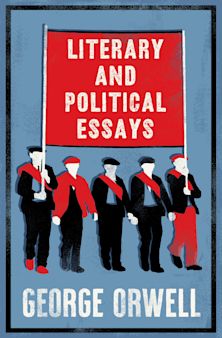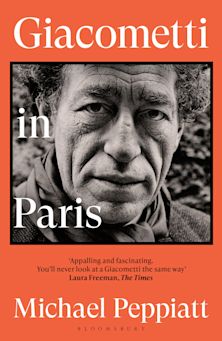- Home
- NON-FICTION
- Literary Non-Fiction
- The Locomotive of War
You must sign in to add this item to your wishlist. Please sign in or create an account
Description
An innovative exploration of the origins, impact, and consequences of the First and Second World Wars, from Peter Clarke, one of our foremost historians.
"War is the locomotive of history," claimed Trotsky, a remark often thought to acknowledge the opportunity that the First World War offered the Bolsheviks to seize power in Russia 1917. Here, Peter Clarke broadens the application of this provocative suggestion in order to explore how war, as much as socioeconomic forces or individuals, is the primary mover of history.
Twentieth-century warfare, based on new technologies and vast armies, saw the locomotive power of war heightened to an unprecedented level. Through the unique prism of this vast tragedy, Peter Clarke examines some of the most influential figures of the day, on both sides of the Atlantic. In Britain, David Lloyd George, without the strains of war, would never have become prime minister in 1916; Winston Churchill, except for the war crisis of 1940, would have been unlikely to be recalled to office; and John Maynard Keynes likewise would hardly have seen his own economic ideas and authority so suddenly accepted. In different ways, the shadow of the great nineteenth-century Liberal leader Gladstone hung over these men - as it did also over Woodrow Wilson in the United States, seeing his presidency transformed as he faced new issues of war and peace. And it was Franklin Roosevelt who inherited much of Wilson's unfulfilled agenda, with a second chance to implement it with greater success.
By following the trajectories of these influential lives, Peter Clarke illuminates many crucial issues of the period: not only leadership and the projection of authority, but also military strategy, war finance and the mobilization of the economy in democratic regimes. And the moral dimension of liberalism, with its Gladstonian focus on guilt, is never forgotten. The Locomotive of War is a fascinating examination of the interplay between key figures in the context of unprecedented all-out warfare, with new insight on the dynamics of history in an extraordinary period.
Product details
| Published | 18 Jul 2017 |
|---|---|
| Format | Ebook (Epub & Mobi) |
| Edition | 1st |
| Extent | 432 |
| ISBN | 9781620406625 |
| Imprint | Bloomsbury Press |
| Publisher | Bloomsbury Publishing |
About the contributors
Reviews
-
Clarke is a skilled biographer. . . . His argument that liberals at this time possessed an eternal sense of the providential is also well made, and he has a keen eye for an anecdote.
Financial Times
-
An old-fashioned kind of history, brimming with ideas and based on scrupulous research, and it is all the better for it . . . . Clarke is such an acute writer that almost every paragraph has something surprising to say. Perhaps above all, he has an unrivalled ability to leaven serious political analysis with gossipy anecdotal details
Sunday Times (London)
-
Pleasantly readable . . . The various historical incidents reported are well-researched and presented with clarity and wry humor.
Kirkus Reviews
-
[Clarke] explains complicated issues in a masterly way . . . This readable account will find (and please) many fans.
Library Journal
-
As a skilled biographer Clarke has a keen eye for the telling anecdote and a finely honed gift for the brilliant vignette. All of this stands him in good stead as he traces the fortunes of liberalism in Britain and the United States through the prisms of David Lloyd George and Woodrow Wilson, Franklin Delano Roosevelt and Winston Churchill, and, more specifically, Keynes.
Times Literary Supplement
-
Peter Clarke aims to examine how the locomotive of war transformed the role of government and the workings of the economic system in the years surrounding the world wars . . . [Herbert Henry Asquith, David Lloyd George, and Winston Churchill] were part of the feuding, intricate, and interconnected oligarchy that ultimately drove the British Empire into and through World War I and toward a second world war. Clarke follows each of their life trajectories, showing how they intersected and shaped not only government policy but also the British zeitgeist of the early 20th century.
Military History Quarterly




































